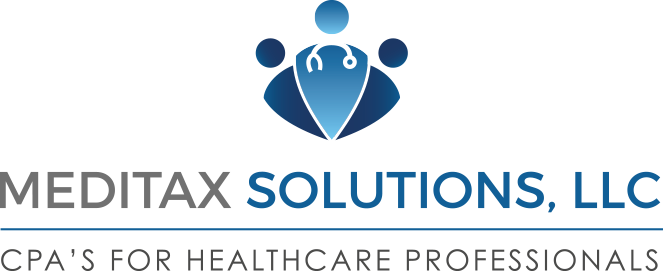
Starting your professional career as a new dentist can be one of the most exciting (and anxious) times of your life. Whether you are beginning your own practice or joining one, there are several important aspects to keep in mind. We have compiled a quick guide that will help you manage your priorities as a new dentist with confidence.
- Protect Your Work-Life Balance – While you might be used to a heavy schedule during your years in academia, don’t let yourself burn out. You deserve a healthy work-life balance. By setting expectations and following them, you can enjoy your time with friends, family, or hobbies without feeling tread on by your work schedule.
- Know Your Strengths – Your practice should center on two things: what you are compassionate about, and what you are incredible at. Don’t pursue a specialty just to appeal to your community if it isn’t something you are excited about. Focusing on your strengths will bring you more satisfaction in your work as well as higher quality to your service.
- Manage Your Debt – Dental school graduates usually have a significant trail of student debt following them. Whether you refinance, make extra payments, or choose an alternate repayment plan, focus on reducing your balance instead of simply paying off the interest. Don’t forget to contribute early to your retirement fund, either. The best time to start saving was yesterday.
- Successful Practice Management – A dental practice is a business, and a business needs a strong leader. Dental schools don’t typically prepare you for the financial and leadership elements of your career, so don’t be afraid to seek coaches or consultants. With the right mentor, both you and your practice can succeed.
- Continue Your Education – The last advice you want to hear as a new dentist is ‘more schooling,’ but it’s true. Once you have settled in, you should look for new opportunities to hone your skills. There exists a world of workshops, lectures, and courses that can further your passion in dentistry, bring you confidence in your work, and improve the value of your practice.
With the right mindset and plan, you can build yourself up as a new dentist, achieving your leadership and financial goals. If you are considering starting your own practice, our team will be the resource you need to secure your future in success. Contact us today to schedule a consultation.
Parlade, Schaefer,& Schortz CPAS, PA Email: [email protected] Phone: (305) 670-0400 Url: https://cpasps.com/ 5975 Sunset Drive, Ste 802 South Miami, FL 33143



 No matter how fantastic you and your team are, you will occasionally have a customer complain about something. When this happens, you and your team may feel discouraged, frustrated, or even annoyed, depending on the specific complaint and how it was shared. It can be easy to brush the complaint aside and tell yourself that the client was just having a bad day. However, changing the way you think about customer complaints can be highly beneficial to your business.
No matter how fantastic you and your team are, you will occasionally have a customer complain about something. When this happens, you and your team may feel discouraged, frustrated, or even annoyed, depending on the specific complaint and how it was shared. It can be easy to brush the complaint aside and tell yourself that the client was just having a bad day. However, changing the way you think about customer complaints can be highly beneficial to your business. Purchasing an existing practice can be an exciting prospect. Whether it’s your first practice or you’re an established owner, the process can be lengthy as you weigh all the pros and cons of the potential investment. Making sure you know everything you need to about a practice before considering an acquisition will help protect you from making a poor choice that could end up costing you in the long run. Below are some considerations to keep in mind when looking to purchase a practice.
Purchasing an existing practice can be an exciting prospect. Whether it’s your first practice or you’re an established owner, the process can be lengthy as you weigh all the pros and cons of the potential investment. Making sure you know everything you need to about a practice before considering an acquisition will help protect you from making a poor choice that could end up costing you in the long run. Below are some considerations to keep in mind when looking to purchase a practice. Handling payroll for a dental practice is often thought of as a simple task. The truth, however, is that there are many minor errors that can easily lead to major problems. Train your team to catch these small mistakes your practice might be making, so you can be sure to avoid them in the future.
Handling payroll for a dental practice is often thought of as a simple task. The truth, however, is that there are many minor errors that can easily lead to major problems. Train your team to catch these small mistakes your practice might be making, so you can be sure to avoid them in the future. Though most of the attacks making headlines are those aimed at large organizations or political groups, roughly a third of all data security breaches in the last few years have occurred in the health care industry. Of these, employee error caused three times as many breaches as external attacks. In addition, more than half of the businesses who experience a security breach have fewer than 1,000 employees.
Though most of the attacks making headlines are those aimed at large organizations or political groups, roughly a third of all data security breaches in the last few years have occurred in the health care industry. Of these, employee error caused three times as many breaches as external attacks. In addition, more than half of the businesses who experience a security breach have fewer than 1,000 employees. The prospect for an audit can be daunting. The best way to combat the stress and anxiety induced with this process is to prepare yourself and your company before it happens. Below are a few tips to keep your stress levels low and your preparations high through the process.
The prospect for an audit can be daunting. The best way to combat the stress and anxiety induced with this process is to prepare yourself and your company before it happens. Below are a few tips to keep your stress levels low and your preparations high through the process. No matter how effective you are at vision casting, dreams require hard work and strategic planning to become a reality. Highly successful business owners know the benefits of setting realistic and measurable goals. Rethink the way you are setting goals for your business. Your ambitious plans will be successful only if you have a road map to reach them. By mastering the art of setting incremental, measurable goals, you’ll be able to more effectively to reach them. For more tips on managing your practice,
No matter how effective you are at vision casting, dreams require hard work and strategic planning to become a reality. Highly successful business owners know the benefits of setting realistic and measurable goals. Rethink the way you are setting goals for your business. Your ambitious plans will be successful only if you have a road map to reach them. By mastering the art of setting incremental, measurable goals, you’ll be able to more effectively to reach them. For more tips on managing your practice,